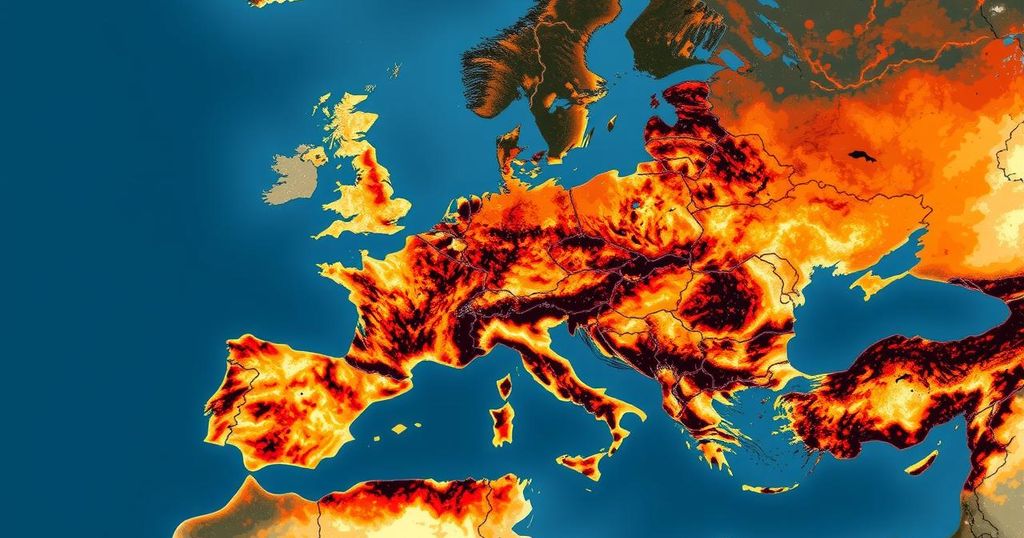Study Links Climate Change to Intensified 2022 Drought in Europe
A study led by the Helmholtz Centre for Environmental Research reveals that human-induced climate change significantly intensified the 2022 summer drought in Central and Southern Europe, contributing to more than 30% of its severity and extent. The drought resulted in critical water shortages, agricultural losses, and economic disruptions across various countries, with soil moisture levels reaching historic lows in the region. The findings emphasize the importance of recognizing the delayed effects of climate change in modeling future drought occurrences.
A recent study conducted by researchers from the Helmholtz Centre for Environmental Research has established that the summer drought of 2022 in Central and Southern Europe was significantly worsened by climate change. The research, published in the esteemed journal Nature Geoscience, asserts that over 30% of the severity and spatial extent of this drought can be linked directly to human-induced climate changes. This drought, which saw soil moisture levels diminish drastically across many regions, prompted severe socio-economic impacts, affecting agriculture and water supply systems. Countries like Italy and France faced critical water shortages, with extensive crop yield reductions and increased forest fires contributing to the adverse conditions observed. The researchers utilized both observational data and advanced hydrological models to assess changes in soil moisture and river discharge, revealing a historic deficit in water availability during these summer months. The findings indicate that climate change has not only intensified this specific drought but also exacerbated long-standing trends in soil moisture depletion across the region. The evidence suggests that delayed climate effects are crucial factors in understanding the full impact of climate change on drought occurrences.
The study addresses a pertinent issue regarding the increasing frequency and intensity of droughts in Europe, particularly in the context of climate change. The Intergovernmental Panel on Climate Change (IPCC) has recognized the influence of anthropogenic factors on drought, yet the extent to which these factors contribute to specific drought events has remained understudied. The increasing temperatures and shifting precipitation patterns are critical components that have historically shaped regional climates and their susceptibility to droughts. By focusing on the summer of 2022, the research reflects on how preceding climate conditions prepared the ground—literally—for the extreme drought experienced, underscoring the importance of understanding long-term climate trends alongside immediate environmental impacts.
In conclusion, the research underscores the profound impact of climate change on the intensity and extent of the 2022 drought in Central and Southern Europe. It highlights that over one-third of the drought’s severity can be attributed to human activities that have altered climate patterns, particularly through rising temperatures. This study not only contributes valuable insights into the dynamics of droughts in the context of climate change but also emphasizes the need for continued examination of the delayed impacts of climate shifts. The findings call for urgent action in managing water resources across Europe, particularly as groundwater supplies face increasing pressure due to ongoing droughts.
Original Source: phys.org




Post Comment